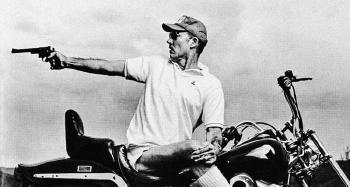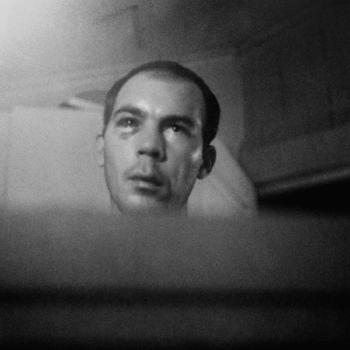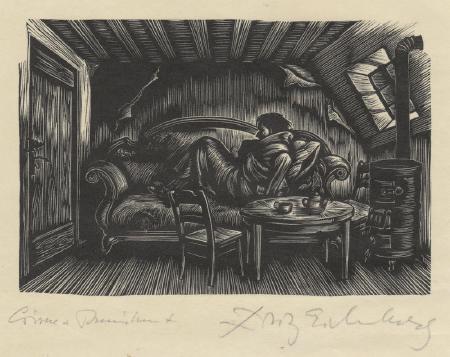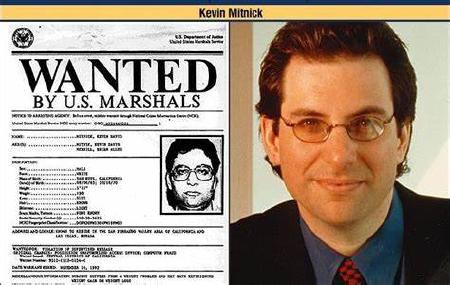Book Talk part 1
This Codex entry is a long time coming; get ready by pouring yourself your favorite tea, making sure to brew it using the exact temperature and steep time suggestions on its packaging – that’s what I’m doing with my Harney & Sons Japanese Sencha1, though I tend to ball-park the steep time.
For some brief background: I’m not a book reader. At least I wasn’t. I grew up with Harry Potter and read some other fiction when I was a kid before diving head-first into computer programming – my mother made middle-school Corbin a VB6 application for her final in a college course she took for work. It left such an impression on me that she gave me her course material and I spent the next several years writing code (and playing video games) instead of reading books.
But here I am, all this time later: reading! Well, sort-of. Now, I’m no Tai Lopez, claiming to have read a ridiculous number of books while actually reading book summaries. However, I like podcasts and I like putting on YouTube videos that I can listen to, so it was only natural that I branched out into audiobooks. I do read physical books and my ereader as well, but Audible is probably the top contributor to cultivating my reading habits.
In this series of Codex entries, I think I’d like to talk about all of the books I’ve read and will read, especially since this will help me continue to remember them myself. As an aside that I think demonstrates this idea, I was at a LAN party over the weekend and the host pulled up his own YouTube video to aid him in a server configuration.
“I cannot remember the books I’ve read any more than the meals I have eaten; even so, they have made me.” - Ralph Waldo Emerson
I read many of these books a “while” ago (all of them in this Codex entry within the last 2 years, anyways), but I hope to ultimately catch this series up to the present day so they’re a little more fresh in my memory as I write about them.
Hell’s Angels
Hell’s Angels: The Strange and Terrible Saga of the Outlaw Motorcycle Gangs
by Hunter S. Thompson
Hell’s Angels might as well be considered my first Audible purchase. I was aware of Gonzo journalism, or the sort of journalism where the journalist inserts themselves into the story, but I didn’t understand what the big deal was – after all, I had seen the Fear and Loathing film and it was entertaining, but is this style of journalism important?
Hell’s Angels answers that question with a resounding “yes.”

Published in the mid-60s, Thompson embeds himself into a motorcycle gang, gaining their trust and living their lifestyle. It’s an illuminating view into that era as well, including how the public and law enforcement viewed and treated the Angels. And rather than relying on cursory background information or 3rd party accounts, you’re virtually in the story alongside the author. These gang members become human and their lives and relationships become real.

Two things that stand out to me from the read was Thompson incessantly describing the abhorrent smell of the bikers – something I feel is likely to be entirely lost if the book were ever to be adapted to the big screen.
The second is a story that came after the “fieldwork” of the book had been completed and ultimately ended his relationship with the Angels. Thompson stood up to an Angel who was beating his wife, saying “only a punk beats his wife and dog.” This led to him being beaten by several Angels until senior members intervened, showcasing the cost of this style of journalism.
Crime and Punishment
Crime and Punishment
by Fyodor Dostoevsky
I feel bad because I didn’t actually finish this book. I knew that it was considered important for its exploration of morality and psychology, but I read it at a time where I had a strange habit of always leaving a little bit left over; if I absolutely loved a TV show and its finale was coming up, I wouldn’t watch it. Or if I was completely enthralled with a 3-hour interview on YouTube, I would close it during the last half-hour. I think the theory was to “savor” it in some way – but I could never bring myself to finish these things later. Anyhow, I probably still have 20-30 pages left of Crime and Punishment, but the events at the very end of the book are escaping me right now.

All of that said, it’s a bit of a depressing read. The main character, Raskolnikov, is essentially a nobody who believes he’s destined to be the next Napolean. His life isn’t perfect by any means, but I think the book goes out of its way to show that he actually has all that he needs and then some. He tests his theory that extraordinary individuals (such as how he views himself) have the moral right to commit murder if it serves a greater good, and he convinces himself that the world would be better off without the pawnbroker he chooses to kill. I’m certainly no Nietzsche expert but it feels a little bit like he views himself as the Übermensch – or at least some bastardized version of it.
Much of the book, and what makes it such a depressing read, is Raskolnikov grappling with the guilt of what he’s done. In a way, he damns himself to hell, and then creates and lives through his own version of it.
Ghost in the Wires
Ghost in the Wires: My Adventures as the World’s Most Wanted Hacker
by Kevin Mitnick (with William L. Simon)
First off: Rest in peace. I had no idea the author had passed away until pulling up his Wikipedia page while writing this Codex entry.

Though a bit of a self-indulgent read, it’s still a worthwhile one from a historical and security perspective. It must be remembered that Mitnick’s crimes were all committed in an era where “computer security” virtually didn’t exist, and an overly-trusting public was ripe for social engineering (a term that either wasn’t coined yet, or at least the concept of it was prohibitively esoteric). Though this world and attitude don’t exist in the same form any longer, social engineering is still an extremely powerful tool, and sometimes it feels like there’s a new high-profile data breach every other day – the recent 23andMe data leak comes to mind.
Kevin Mitnick is the world’s most famous hacker, probably by a long shot, and is possibly most well-known for the untrue rumor that he could “start a nuclear war by whistling into a pay phone.” This rumor led to him spending eight months in solitary confinement after pleading guilty to computer crimes in 1999, as it was believed he was too dangerous to be allowed into the general population. For seven years after his release, he was also prohibited from profiting off of books or films written about his criminal activity.

Probably a decade ago and prior to me learning of the full Mitnick story or reading this book (and prior to the release of the seemingly disappointing Watch Dogs game), I had a mostly unoriginal idea for a fictional story about a computer hacker that has near-total control over the world around him – able to intercept radio or phone communications on a whim, or control traffic lights or steal personal information from other’s devices, that sort of thing. Something like “god mode” in real life. When I started working on this, I had no idea about the extent of Mitnick’s criminal escapades, only to learn later that I was essentially writing a fictional version of his life.
As a general warning to anyone reading this, I want to make a point to say that this book really showcases the “human” element of computer security. I feel that this is frequently undervalued. “Hackers” are frequently seen as basement-dwelling geniuses or criminal savants who write some code to get into your bank account and steal your money and that sort of thing. But the reality, at least to the average person, is a lot more mundane: they trick you in some fashion to gain your trust and convince you to do things like handing over privileged information. They’ll answer the phone and say that they work for Microsoft and they’ll talk you into installing otherwise legitimate software on your computer that gives them control over it.
What made Mitnick so prolific, and even a little controversial in the field of computer security, is that he was so successful because of these sorts of social engineering skills coupled with his technical knowledge of the phone systems of that era. He may be known as the world’s most famous hacker (which most people associate with computers), but his tools of choice were his phone and his ability to communicate, rather than his computer.
Rest in peace, Kevin Mitnick.
CHAOS
CHAOS: Charles Manson, the CIA, and the Secret History of the Sixties
by Tom O’Neill (with Dan Piepenbring)
If one thing is for sure, it’s that the “official” narrative put forward about the 1969 Tate-LaBianca murders is deeply flawed.
There’s no chance that I’ll be able to offer a worthy summation of all the interesting details unearthed by Tom O’Neill’s decades-long investigation into the subject. I’ll give it a shot though, and start by explaining where the title comes from: not unlike MKUltra, Operation CHAOS was a covert CIA-led program that aimed to monitor and infiltrate domestic anti-Vietnam War activists and civil rights protesters, beginning in 1967 until its conclusion in 1974.

The book uncovers and explores links between Charles Manson and various CIA programs that were running around this time. However, to quote Publishers Weekly, “As [O’Neill] admits, the loose ends are still not tied up and with so many of the culprits dead they probably never will be,” and Greg King of The Washington Post, “it ends without a unified theory of the crimes and their motivations.”
It’s been a little while since I read it, but I personally found that the book stopped short of entering “conspiracy theory” territory. The author presents the evidence that there is for the various conspiracies that are out there, but I never felt like he was irresponsibly giving credit where it wasn’t due, or ascribing a purpose or motive that wasn’t firmly rooted in objectivity.
Some threads that are pulled on throughout the book are more interesting or compelling than others, but I recall feeling very invested and consistently looking forward to continuing the book each time I had to take a pause. I would absolutely recommend it to anyone, even with peripheral familiarity with the Manson Family, who is curious to learn more about the murders and this period in American history. Additionally, I want to recommend the author’s appearance on Rogan as it’s what originally turned me on to the book, but it looks like the full interview was removed from YouTube and replaced with clips. I don’t have Spotify so I’m not sure if it’s on there, but it’s episode 1459. Here’s a clip.
Conclusion
I’m the first to admit that lately I’ve been reading a lot more than I’ve been writing, and I’m squeezing this entire entry in just before its deadline later today. That said, I still bit off more than I could chew, and I literally had an additional 13 books queued up to discuss today. It seems crazy looking at that list now, knowing how much time and effort I’ve put in so far, but it somehow made sense to me when I first outlined what I wanted to write.
Fear not, however! That just makes this entry a “part 1 of ?” series.
I hope you leave either interested in reading one of these titles yourself, or even just feeling inspired enough to explore what books are out there related to your own interests. With Audible’s accessibility and affordability (and apparently also alliteration), I feel there aren’t many reasonable objections to such a time-tested medium.
I’ll end this Codex entry with a vague recollection of the event that led to me reading more. I think it was a social media post in response to another on the subject of either stoicism or death (or both!). The user wrote something like, “I had the realization that I’m unlikely to have the time to read more than X books over the rest of my life.” As someone who really didn’t read books at that time, I asked myself, “do I want to die having read virtually no books?”
Of course there’s a greater context to me asking myself this question, as at that time I had no problem spending hours and hours on social media or watching funny videos or listening to podcasts. I still make time for all of these things, but it was because of this question that I further pondered what I want to spend my time on. I still watch high-level and professional Brood War games every day, and I still catch myself mindlessly scrolling Twitter or Reddit, but I’ve also made time and given priority to habits like reading and writing that I’ve actively decided to cultivate – rather than feeling like they were cultivated for me.
As always, thank you for taking the time.
c.zip
-
I’m certainly no tea snob so I don’t feel bad at all if this tea brand makes me a “tea normie” – I’m happy to take suggestions and try something new but it’s a good price and tastes great! ↩︎